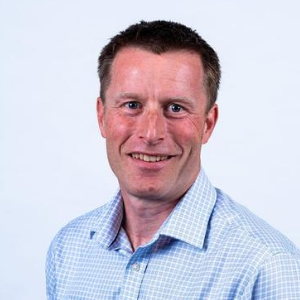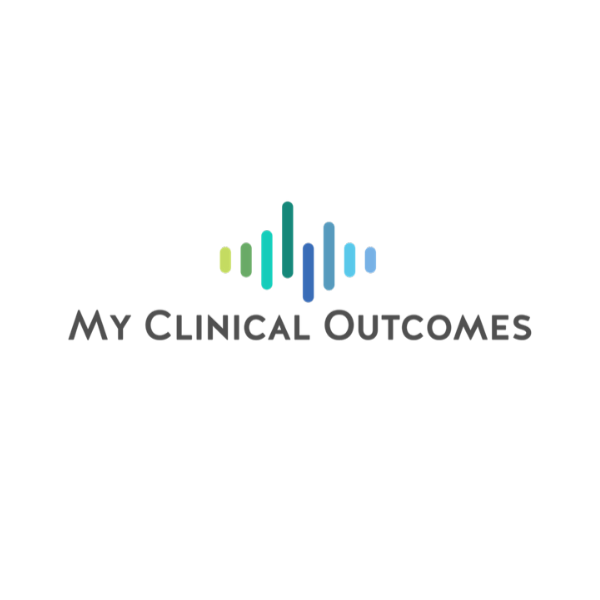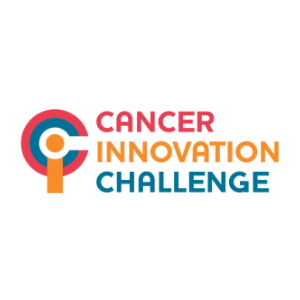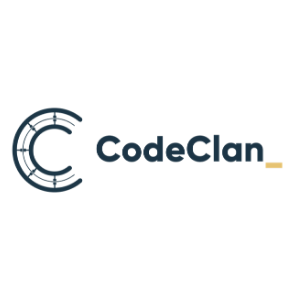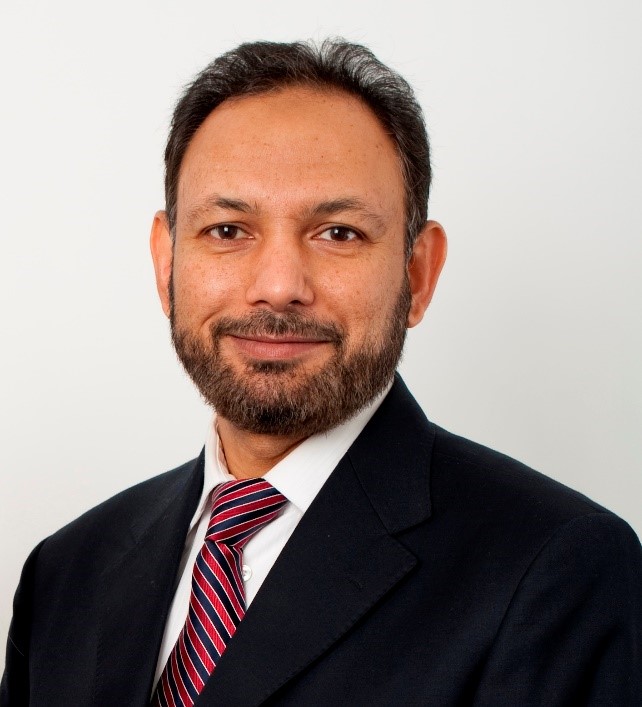Discover The Data Lab
The Data Lab

The Data Lab
Author: thedatalab
Subscribed: 35Played: 220Subscribe
Share
© Copyright 2019. All rights reserved.
Description
Interviews with Data Scientists, hosted by The Data Lab team, the national innovation centre for data and AI in Scotland. Connect with us at http://www.thedatalab.com and @datalabscotland.
36 Episodes
Reverse
In this episode our host, Principal Data Scientist Joanna McKenzie, talks to Lee Barnsdale and Emma Callinan of Public Health Scotland about the importance of data in tackling, and reducing, drug related deaths.
Scottish Drugs Forum
The Scottish Drugs Forum provides information, resources and e-learning. For more information visit: https://sdf.org.uk
To find a drug service near you, visit the Scottish Drug Services Directory: www.scottishdrugservices.com
We Are With You
We Are With You provides online support for alcohol, drugs and mental health: www.wearewithyou.org.uk
For online support and drugs information for young people and parents, visit Know the Score: https://knowthescore.info
Crew
For drug harm reduction information and resources, visit www.crew.scot
Recovery support
Scottish Recovery Consortium
Details of mutual aid and recovery communities can be found via the Scottish Recovery Consortium: https://scottishrecoveryconsortium.org
Family support
Scottish Families Affected by Alcohol and Drugs
If you are concerned about the effects of drug use in your home, and the impact this is having on you or other family members, Scottish Families Affected by Alcohol and Drugs can help: www.sfad.org.uk
For more information
Visit NHS Inform: https://www.nhsinform.scot/healthy-living/drugs-and-drug-use
In this episode we speak to Roger Halliday, Chief Statistician at the Scottish Government, about the role of statisticians in the modern world; from informing policy makers to documenting our ever-changing world.
Click here for more information on the Scottish Government's statistics vacancies: https://careershub-scottishgovernment.icims.com/jobs/search?ss=1&searchCategory=8748
Get your Data Talent tickets here: https://datafest.global/tickets
Our host Dr Joanna McKenzie talks to Gea Mikic of Icebreaker One about how they are creating a web of net-zero data – connecting financial, engineering and environmental data to help inform net-zero decisions.
Our host Dr Joanna McKenzie is joined by Professor Ed Mitchard - Co-founder and CTO of Space Intelligence - and Emma Mitchell of NatureScot to discuss the companies' collaborative project exploring Scotland's biodiversity.
Check out Space Intelligence's land cover map of Scotland: https://www.space-intelligence.com/scotland-landcover/
Our host Joanna McKenzie is joined by Jethro Browell, Senior Lecturer at the University of Glasgow Statistic Department. Jethro has worked extensively with the energy industry to develop forecasting models and in this podcast he talks through the process, challenges and opportunities found in such modelling.
Joanna McKenzie - Principle Data Scientist at The Data Lab - talks to Ellen Friedman about their journeys through the world of data and what being a data scientist means today.
Ellen Friedman, Principal Technologist for HPE Ezmeral at Hewlett Packard Enterprise, is an international speaker, author and scientist, with a doctorate in biochemistry from Rice University. She currently focuses on large-scale data analytics and AI/machine learning. Ellen was a committer for the Apache Drill and Apache Mahout open source software projects and co-author of multiple books published by O’Reilly Media, including AI & Analytics at Scale, AI & Analytics in Production, Machine Learning Logistics, A New Look at Anomaly Detection and Innovations in Recommendation.
CEO of The Data Lab Gillian Docherty chats to Sana Khareghani, Head of The Office of Artificial Intelligence, and Tabitha Goldstaub, Chair of the UK Artificial Intelligence Council.
CEO of The Data Lab Gillian Docherty and Kate Forbes, Cabinet Secretary for Finance in the Scottish Government, discuss the AI Strategy for Scotland and the importance of people getting involved in the process of creating a strategy for artificial intelligence in Scotland.
This episode requires a brief introduction. As Brian will mention in the intro it was recorded pre-COVID-19 and some of the issues discussed have had changes to them to match the current needs.
Roger Halliday started as Chief Statistician in November 2011. Before that, he worked in the Department of Health in England as a policy analyst managing evidence for decision making across NHS issues.
He qualified with a degree in statistics in 1993 from St. Andrews University and joined the Department of Social Security (as was) as an assistant statistician. He worked for spells at the Department of Health in England and in a number of statistical and policy making roles at the Scottish Government before leaving in 2005. His areas of expertise are around children, learning, skills and the economy, as well as in health.
The Cancer Innovation Challenge is a £1M project funded by the Scottish Funding Council (SFC) to encourage Innovation Centres in Scotland to work in partnership to help Scotland become a world leading carer for people with cancer through open innovation funding calls for data science solutions.
We have decided to run a series of episodes on the Cancer Innovation Challenge focusing on what it is, who's involved and the results from it.
This episodes guests, and final guests of this series, are members of the the Canon Medical Research Europe team.
Canon Medical Research Europe is a leading medical software research and development centre of excellence, generating breakthrough technologies and valuable intellectual property for Canon Medical Systems. Based in the diverse city of Edinburgh we employ over 100 people working as Software Engineers, Scientists, Clinical Specialists, Testers and Business Support and are part of a global corporation headquartered in Japan. We develop next generation medical imaging software to integrate with Canon Medical scanners and other diagnostic healthcare solutions which are installed in hospitals and healthcare centres across the globe.
The Cancer Innovation Challenge is a £1M project funded by the Scottish Funding Council (SFC) to encourage Innovation Centres in Scotland to work in partnership to help Scotland become a world leading carer for people with cancer through open innovation funding calls for data science solutions.
We have decided to run a series of episodes on the Cancer Innovation Challenge focusing on what it is, who's involved and the results from it.
This episodes guest is Anne Bruinvels, Founder of PX Healthcare. PX Healthcare were one of 3 companies involved in the Cancer Innovation Challenge. The other two will be featured in the following two episodes.
Their mission is to revolutionize the use of the patient's voice to improve both patient experience and clinical outcomes in cancer. Px has developed a digital health platform that combines Patient-Experience with Advanced Data-Analytics to improve clinical outcomes in oncology.
The Cancer Innovation Challenge is a £1M project funded by the Scottish Funding Council (SFC) to encourage Innovation Centres in Scotland to work in partnership to help Scotland become a world leading carer for people with cancer through open innovation funding calls for data science solutions.
We have decided to run a series of episodes on the Cancer Innovation Challenge focusing on what it is, who's involved and the results from it.
This episodes guest is Tim Williams CEO of My Clinical Outcomes. My Clinical Outcomes were one of 3 companies involved in the Cancer Innovation Challenge. The other two will be featured in the following two episodes.
My Clinical Outcomes (MCO) is a web-based platform that automates the collection and analysis of Patient Reported Outcome Measures (PROMs). Data is collected regularly and remotely throughout diagnosis, treatment and long-term follow-up for any clinical condition. Watch our video to see an overview of what we do.
MCO was founded in 2011 and has collected data at over 70 hospitals, with over 1,000 clinicians and 45,000 patients using the system. The MCO team use this extensive experience to continually develop the platform and inform effective implementation. MCO integrates with existing workflows and is highly interoperable with other technical systems. It can be configured and implemented quickly so that outcomes data can be used to support clinical improvements within weeks.
The Cancer Innovation Challenge is a £1M project funded by the Scottish Funding Council (SFC) to encourage Innovation Centres in Scotland to work in partnership to help Scotland become a world leading carer for people with cancer through open innovation funding calls for data science solutions.
We have decided to run a series of episodes on the Cancer Innovation Challenge focusing on what it is, who's involved and the results from it.
First up we have Programme Manager, Steph Wright. Steph takes us through what the Cancer Innovation Challenge is and sets the scene for the remaining episodes in this series.
We caught up with some of the team involved in the skills and data science side of Royal Bank of Scotland in our latest episode.
RBS is at the forefront of the banking world and have jumped at the opportunity presented by data science. We learn from their experiences in what it takes to pull together a great data team and how they maintain their staff through constant upskilling.
Through their range of digital training courses Codeclan are helping to transform the careers of 100s of professionals across Scotland and delivering a steady pipeline of talent to their growing network of employer partners. The rapidly evolving digital industry impacts almost every sector in Scotland. Codeclan take care to understand the skills that are sought by employers across the country and the technologies that are changing businesses every day. There’s a skills shortage now and Codeclan aren't wasting any time. They’re transforming careers in days, weeks and months – not years – through immersive courses and shorter upskilling courses. Immersive courses and employer partner programme provide job opportunities for around 400 graduates every year. They’re creating real impact and delivering immediate value to Scotland’s growing digital economy.
In this episode we speak to some of the team at Codeclan and learn how it all works, right from the beginnings of curating a course to where students can expect to end up working with their vast relationships with employers across Scotland. If you're interested in upskilling, or a change in career be sure to tune in.
For more details - https://codeclan.com/
Euan initially studied Psychology where he applied deep learning to EEG data for controlling a text to speech system, having taught himself Machine Learning and Python programming.
He now works full time in a data science team in the NHS NSS specialising in machine learning and data driven solutions. His current focus is on delivering and improving the Synthetic Data System (SDS) python library for large scale synthetic medical data. He also analyses food poverty data for effective interventions.
In his spare time I research Artificial Intelligence based optimisation responses to Influenza outbreaks to try and get a PhD. He also plays guitar and pets as many dogs as he can.
If you're interested in synthetic data and what this could mean for you and your business this one's for one. A little bit more technical than our usual podcasts, however still explanations of new terminology are throughout.
The Data for Children Collaborative with UNICEF is a joint partnership between UNICEF, The Scottish Government and the University of Edinburgh’s Data Driven Innovation Programme which seeks to improve outcomes for children locally, nationally and globally. It draws on the strengths of all partners to bring insight and solve problems using data and data science techniques.
Hear from delivery director, Alex Hutchison and head of business development at The Data Lab, Jude McCorry on how this came about, what's it's current status is and what the plans are going forward.
Prof Mahmood Adil has 25 years of medical, public health and executive management experience in the NHS and USA. His current remit is to oversee the health intelligence and health protection functions of Scotland. He provides professional leadership in utilising the most comprehensive national health data, digital and informatics capability to improve broad ranging clinical outcomes and delivering effective patient and population health services. He is Honorary Professor of Health Intelligence & Service Effectiveness (University of Glasgow), Visiting Professor of International Health (University of Strathclyde), Clinical Data & Intelligence Lead (Royal College of Physicians of Edinburgh) and National Clinical Informatics Lead (Digital Health & Care Institute, Scotland). He is an alumni of the Harvard Kennedy School, Institute of Healthcare Improvement (USA), Yale School of Public Health and European Hospital & Healthcare Federation. He has postgraduate qualifications in medicine, paediatrics, public health, economics, management and health informatics fields. He has a demonstrable track record of comprehensively measuring, regulating and improving healthcare quality and been adviser to a number of countries and organisations globally.
Ollie is responsible for overall strategy within Telefonica Alpha’s Health Moonshot, alongside establishing and maintaining strong partnerships, and business model development. He has extensive experience in strategy and innovation across a range of sectors. Before joining Alpha he was Director of Strategy and Innovation at Guy’s and St Thomas’ Charity, responsible for investing £100m over five years in innovations across acute, primary, and integrated care, and biomedical research and digital health. He was a Senior Civil Servant in the UK Department of Health; responsible for UK Tobacco Control Policy, and wrote the government’s first comprehensive childhood obesity strategy. Oliver was also a Policy Adviser in the Prime Minister’s Strategy Unit under Tony Blair. He has a BA in Politics, Philosophy, and Economics from Oxford University.
Joanna J. Bryson is a transdisciplinary researcher on the structure and dynamics of human- and animal-like intelligence. Her research covers topics ranging from artificial intelligence, through autonomy and robot ethics, and on to human cooperation. Her work has appeared in venues ranging from a reddit to Science.Bryson's first degree is in Behavioural Science (non-clinical psychology) from Chicago (1986), she also holds an MSc in Artificial Intelligence and an MPhil in Psychology from Edinburgh (1992, 2000) and a PhD in Artificial Intelligence from MIT (2001).
She joined Bath in 2002 in their Department of Computer Science, where she was promoted to Reader (tenured associate professor) in 2010. She founded and for several years lead their Intelligent Systems research group, and is affiliated with Bath's Institutes for Policy Research and Mathematical Innovation, as well as their Centres for Networks and Collective Behaviour and for Digital Entertainment. Joanna is currently the Professor of Ethics and Technology at the Hertie School of Governance in Berlin.
She has held visiting academic positions with Princeton's Center for Information Technology Policy, the Mannheim Centre for Social Science Research (MZES, 2011-2014), the Department of Anthropology Oxford (Harvey Whitehouse's Explaining Religion project, 2010-2011), The Methods & Data Institute at Nottingham (agent-based modelling in political science 2007-2008), and the Konrad Lorenz Institute for Evolution & Cognition Research in Austria (on the biological origins of culture, 2007- 2009).
Before coming to Bath, she conducted academic research in Edinburgh's Human Communication Research Centre (1999-2000), and Harvard's Department of Psychology (2001-2002). Additionally, she has professional experience in Chicago's financial industry (1986-1991), international organization management consultancy (1993-1994), and industrial AI research (for LEGO, 1995, 1998). Bryson has served on the Senate, Council, and Court for the University of Bath, representing the Academic Assembly.
She is presently a member of the College of the British Engineering and Physical Sciences Research Council (EPSRC) and serves as a member of the editorial board for several academic journals, including Adaptive Behaviour, AI & Society, Connection Science, and The International Journal of Synthetic Emotions.


